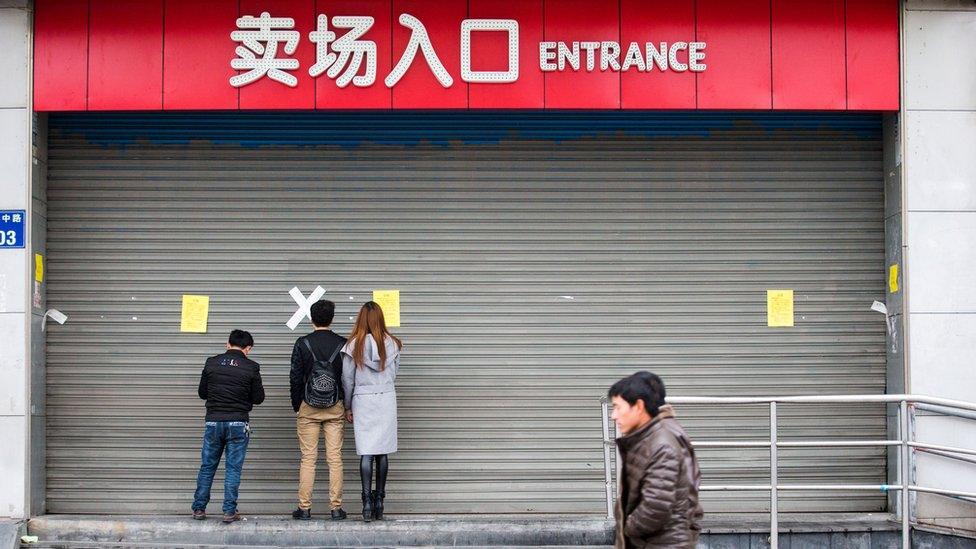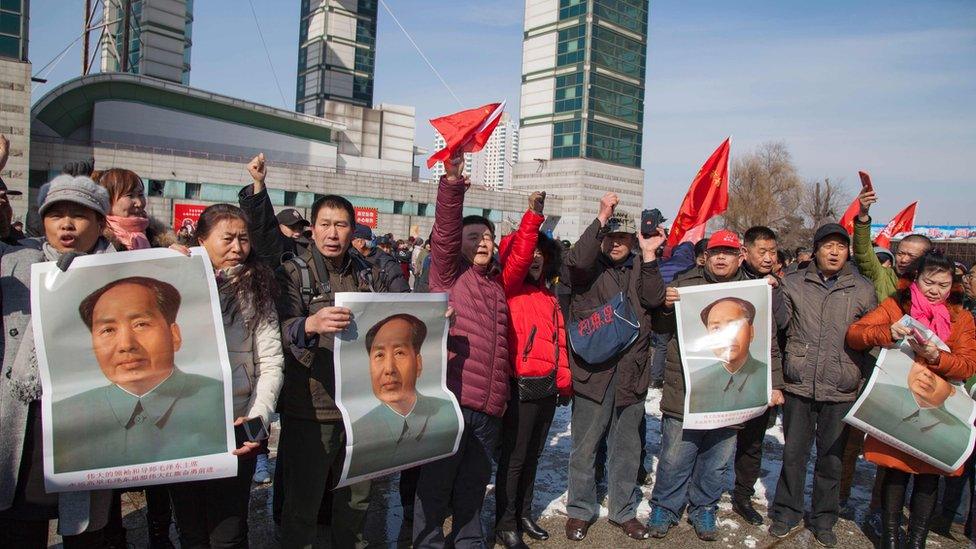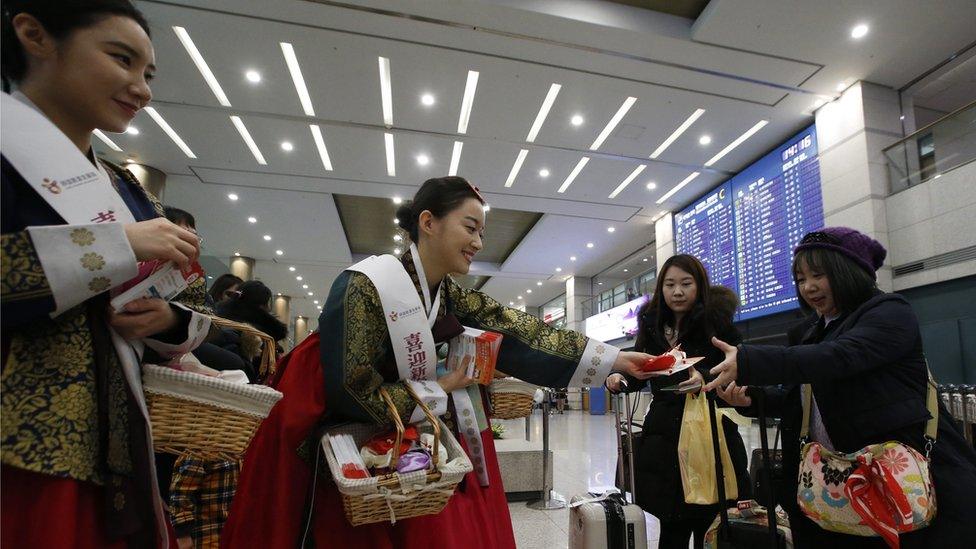Is China retaliating against Lotte missile deal?
- Published

China is a crucial market for many South Korean companies, and the food and retail giant Lotte is no exception.
The fifth biggest firm in South Korea gets an estimated 30% of its sales from China, and employs about 20,000 people there.
But in the past week, several of its businesses have faced a backlash from hackers, customers and Chinese partners.
On Monday, Lotte said that more than 10 of its department stores across the country had been closed down suddenly. So what's going on?
Background: Missiles and a golf course
At the end of February, Lotte finally agreed to provide land it owned in South Korea - which includes part of a golf course - so the US could build its controversial Terminal High Altitude Area Defense (THAAD) missile defence system.
With the ability to shoot down ballistic missiles, the US says it is an important line of defence against North Korea's missile development programme.
But over the past few months, Beijing has been lobbying heavily against it - saying the system's powerful radars are capable of monitoring Chinese territory.
It disputes the argument that it will bring more stability to the region, saying it should not be allowed to go ahead.
What has happened?
As well as its shops and food businesses, Lotte also has hotels and cinemas in China. But since signing the deal last week Lotte, has reported various operations in China have been disrupted.
On Monday, photos and videos were circulating of protests outside Lotte stores. "South Korea's Lotte has declared war on China. Lotte supports THAAD. Get the hell out of China" said one banner.
While confirming the department store closures, Lotte has given no explanation. Other incidents include:
Lotte Duty Free, the world's biggest duty free company which makes 70% of its sales to Chinese customers, said its website had been taken offline by a cyber attack. It is now up and running again.
Cosmetics retailer Jumei Youpin said it had "completely scrubbed the name of Lotte from our website". It added: "We'd rather die than carry its goods in future".
Chinese e-commerce site JD.com - which serves as a platform for retailers to sell online - temporarily closed the Lotte shopping site. Technical issues were blamed.
Snack maker Weilong said it was pulling its products from all Lotte stores, saying it would "no longer cooperate" with the South Korean firm.
Prior to the missile deal being signed, Lotte had reported its businesses being put under extra scrutiny from tax authorities. And in February, a multi-billion dollar property project in China's north-east was halted after a fire inspection.

Is Lotte being paranoid?
Beijing certainly has not admitted any economic retaliation and Lotte has been restructuring loss-making China businesses.
But China's state-run news agency Xinhua has described Lotte's decision to provide the land as "opening a Pandora's box in North East Asia."
Separately, it has written that "the decision could turn into a nightmare for Lotte, which depends heavily on Chinese tourists to South Korea for revenue from duty free stores".
Meanwhile Lotte itself has not said directly that any of the incidents were linked to the missile project controversy.
But South Korea's trade minister Joo Hyung-hwan, who has recently had an invitation to an annual forum withdrawn, has expressed "deep concerns over a series of actions in China".
"We will act accordingly to international law against any actions that violate policies of the World Trade Organization or the free trade agreement between South Korea and China," he said.

Numbers of Chinese tourists visiting South Korea may fall
Is it only Lotte that's affected?
There are reports of a broader backlash against South Korean products and industries from China.
China's national tourism administration has told travel agencies to stop selling group packages in South Korea, according to South Korean news agency Yonhap.
And Yonhap also reports that some Chinese streaming platforms have removed Korean material from their sites - a blow to viewers of the dramas which are increasingly popular.